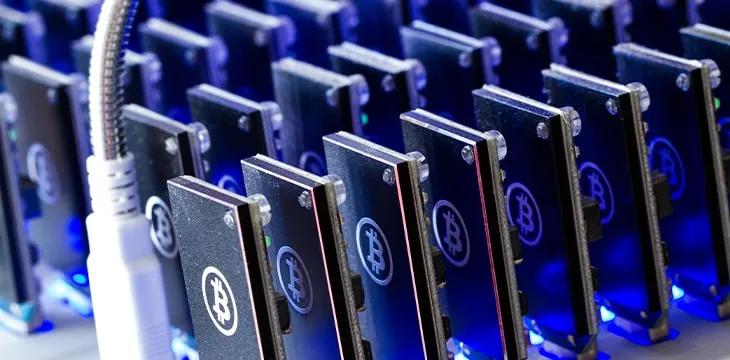|
Getting your Trinity Audio player ready...
|
As countries like China booted block reward miners and others like Kazakhstan welcome them, Russia is seeking to thread the needle by legalizing mining, but only in energy-rich regions.
The Bank of Russia, the Ministry of Finance, and several legislators have come together to draft a bill that will relegate block reward mining to regions flush with hydroelectric and nuclear power energy, local media outlet RBC reports.
Under the new bill, which Chairman of the State Duma’s Financial Market Committee Anatoly Aksakov will table in parliament, mining would be illegal in regions that face power shortages, including in the capital Moscow and surrounding areas such as Krasnodar Krai, Moscow Oblast, and Belgorod Oblast.
Russia has traditionally been one of the world’s biggest players in block reward mining. In 2021, the Cambridge Bitcoin Electricity Consumption Index (CBECI) revealed that the country ranked only behind the United States and neighboring Kazakhstan in BTC mining, accounting for over 11% of the global BTC hash rate.
Since then, Russia’s profile as a block reward mining hub has dwindled. CBECI now shows that the country only contributes 4.6% of the BTC hash rate, with China again being a major player at 21% despite the miners’ exodus last year.
According to local media group RBC, Irkutsk Oblast and Krasnoyarsk Krai will be on top of the list of BTC mining hubs if the bill sails through due to their high hydroelectric power production. Regions such as Saratov, Tver, and Leningrad, home to nuclear power plants, will also be allowed to host the miners. All these regions have been home to many mining companies for years now.
One local blockchain expert opined that Russia could also allow miners to operate in energy-deficient regions, but only if they construct their own hydropower plants.
The proposed bill comes at a time when Russia is exploring digital assets for international payments amid tightening sanctions following its invasion of Ukraine. As CoinGeek reported, the country’s central bank and Ministry of Finance have backed the move but have insisted on stringent anti-money laundering practices to deter Bitcoin crime.
Wacth: The BSV Global Blockchain Convention panel, Blockchain mining & energy innovation

 07-11-2025
07-11-2025 





